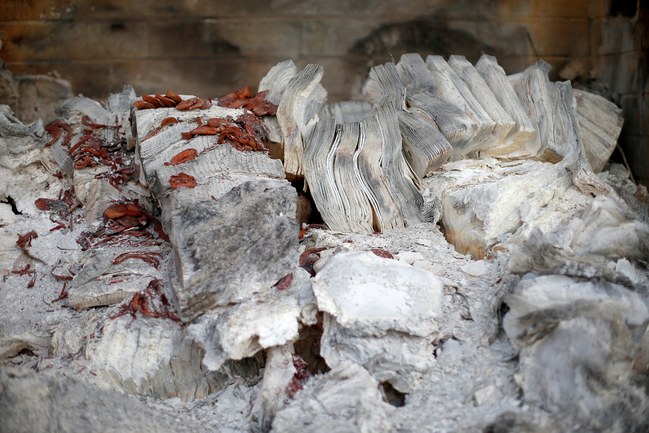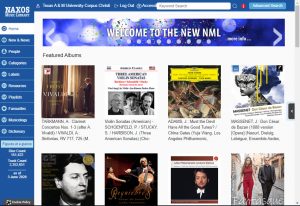“Dort wo man Bücher verbrennt, verbrennt man auch am Ende Menschen – where they have burned books, they will end in burning human beings.” – Heinrich Heine
In 1933, some of the finest young minds in Germany gathered in Berlin. Fueled by the antisemitic fervor that was being cultivated, they built a bonfire in a public square and fed the flames with the words, thoughts, and ideas of Jewish authors. This destruction was a declaration. A statement was being made as the pages burned. History has informed you about the horrors that escalated, motivated by hatred targeting specific groups of people considered different from the “superior race”.
Today, we look back on the incident that took place that night and see it now as a catalyst for the horrors that were to come. Remember, the Holocaust did not begin with Jews and other “outside” groups being sent to concentration camps, the Holocaust began with hatred and targeted censorship.
Hitler had a vision to create a pure society of individuals who believed his message without dissidence. To do this, he needed to remove any and all distractors. He targeted groups, individuals, and he had teams create propaganda that was successfully fed to the country. He banned and censored any and all outside influences. He wanted a firm grip on his Germany in order to execute his ultimate plan.
In general, walk up to anyone in the United States and other countries and ask if they thought the Holocaust was bad; you’ll get a look of “duh.” Continue with the question, “Do you believe the burning of Jewish books that happened in Germany prior to World War II was bad?” Once more, you’ll likely get an “of course” response. This, however, was an event that occurred over 80 years ago. Let’s talk about today. It’s easier to identify what was bad when we can look at things with a distant, removed perspective. Not that I would ever defend anyone who supported these acts (now or then), do you ever wonder what you would have done if you were the average German citizen during that time? We’d all love to believe we’d see through the lies and hate speech…but would we really?

Let’s bring things to modern times. In 2015, ISIS members burned down the University of Mosul’s library, destroying thousands upon thousands of books, including 8,000 rare books and manuscripts. This act was considered by Irina Bokova, the director-general of UNESCO, to be “the systematic destruction of heritage and the persecution of minorities that seeks to wipe out the cultural diversity that is the soul of the Iraqi people, Burning books is an attack on the culture, knowledge and memory” (Wright, 2017).
Not close enough?
In 2010, 2011, 2012, and 2013 Florida pastor, Terry Jones, either threatened, attempted, or successfully burned the Quran. He was arrested in 2013 for carrying almost 3,000 kerosene-soaked Qurans that he intended to burn (Peralta, 2013). His reasoning was that the religious text was anti-American, terrorist material, and sinful.
It doesn’t end there, however.
In 2018 a man named Paul Dorr, checked out four books from the Orange City Public Library in Iowa and filmed himself burning the titles. The books were from the children’s and young adult sections of the library and included LGBTQ+ elements. Dorr filmed his burning of these books and posted it to Facebook, admonishing the library for peddling such sinful stories (Fleig, 2018). He received 43 likes (personally, I feel that to be 43 too many).
Regardless of your greater beliefs, there is no true defense for censorship. While this does not mean a parent shouldn’t be able to decide what their child is allowed to read or watch, it does mean that there is no person, group, or entity that has the right to determine what should be made available to others.
In response to Dorr’s burning of public library books, Mark Stinger, executive director of the American Civil Liberties Union (ACLU) of Iowa, stated that “burning books from a public library is a clear attempt to shut down the open sharing and discussion of ideas. It’s one person, or maybe a group, deciding that they’re the gatekeep of ideas for the rest of the public” (Fleig, 2018).
If you can’t tell by now, the Bell Library, like many libraries, actively advocates against censorship. If you have any thoughts or ideas on censorship or the banning of books (which is a very real thing that obviously still exists), stop by the library this week (September 22-28) to browse our display on the first floor, and share your thoughts about this topic.
On Thursday, September 26th the library will also celebrate its annual Open House. During this event, you can purchase a Banned Book t-shirt made by Full Court Press from 11am to 4 pm. Additionally, from 1-4pm you can visit with Banned Book characters (portrayed by Theatre students), take part in a scavenger hunt, and have a chance to win amazing prizes.
Don’t let the conversation end. Censorship is real and still going strong. Let your voice be heard!!
Citations
Fleig, S. (2018). Iowa man burns children’s books from public library to protest Orange City Pride. Retrieved from https://www.desmoinesregister.com/story/news/2018/10/22/iowa-man-burns-childrens-books-orange-city-pride-public-library-lgbtq-literature-aclu-iowa/1728786002/
Peralta, E. (2013). Pastor Terry Jones arrested before planned Quran burning. Retrieved from https://www.npr.org/sections/thetwo-way/2013/09/11/221528510/pastor-terry-jones-arrested-before-planned-quran-burning
Wright, R. (2017). Mosul’s library without books. Retrieved from https://www.newyorker.com/news/news-desk/mosuls-library-without-books


